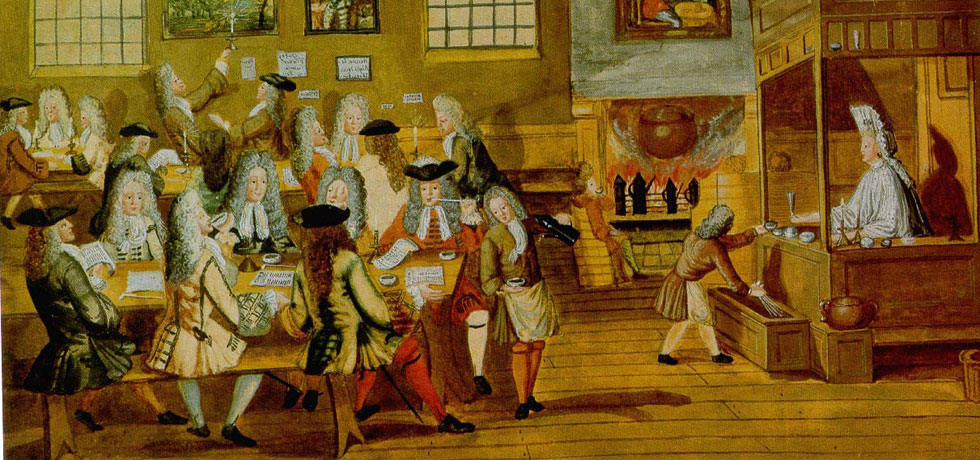Welcome
In almost every decade there is a day that changes everything. Because of the events of these days, the world would never be the same. Each month in this series of café historique, a different UVic historian will introduce one such day in their area of expertise, the events that led up to it, and how the events that followed transformed history and ultimately our world today. And then we open the floor for discussion and conversation...
What is a Café historique? A group of interesting people in a convivial café setting, who gather to hear a talk and discuss new ideas about how the past has shaped our present and future, as well as to drink, eat, converse, meet friends, and have an evening to remember.
Tickets: Café historique is free and open to the public but to avoid being turned away, tickets should be reserved on this website to guarantee admission. Tickets become available for reservation at least two weeks prior to the talk and must be picked up by 6:40 on the day of the talk or they will be released. A limited amount of tickets will be available at the door.
Those without access to the internet can book tickets by calling the UVic History Office: 250-721-7383.
Sponsored by the Faculty of Humanities and Department of History, University of Victoria.
The next event is....April 1st and the topic is
September 9, 2011: 9/11
by Dr. Jason Colby
Schedule
Oct 1
October 1st, 1347: The Black Death: the deadliest pandemic the world had ever seen.
Dr. Sarah Beam
Oct 1
October 1st, 1347: The Black Death: the deadliest pandemic the world had ever seen.
Dr. Sarah Beam
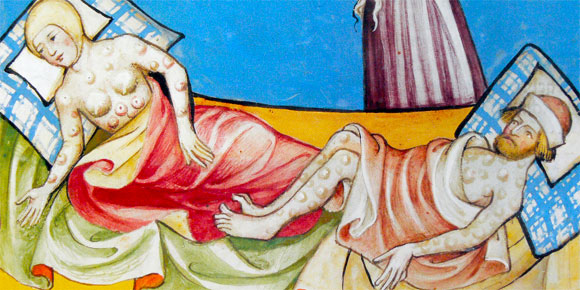
From the 14th century until it was eradicated in the 19th, the “Great Pestilence” or Black Plague revisited Europe and Asia repeatedly killing, it is estimated, over a quarter of the world’s population and perhaps as much as 60% of Europe’s. It prompted religious, social and economic upheavals, profoundly affecting
×Nov 5
July 14th, 1789: The Dawn of the “Modern” Era
Dr. Jill Walshaw
Nov 5
July 14th, 1789: The Dawn of the “Modern” Era
Dr. Jill Walshaw
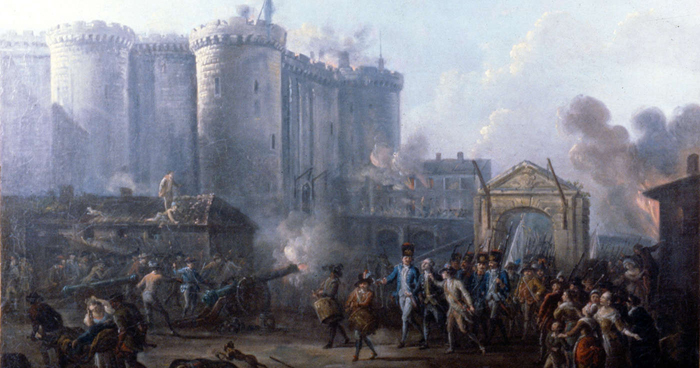
What do you picture when you think of the word “Revolution”? Is it Lenin’s profile or Che Guevara on a t-shirt? Do you hear John Lennon in your head?
Whether or not you see French townsmen with heads impaled on their pikes, the French Revolution of 1789 was in many ways the dawn of the modern era, and the first European political revolution to overthrow what is now called the “Old” order.
The Revolution destroyed many things: the throne upon which Louis XIV had sat, the feudal order on which France’s economy was built, and the censorship with which its people were silenced.
It was also intensely creative: in the years following the fall of the Bastille, France saw the institution of paper money, a bizarre new calendar and the metric system, not to mention universal male suffrage and the concept of “innocent until proven guilty”.
A surprising number of our political, social and cultural institutions come from those crazy pike-wielding revolutionaries... don’t turn your back on them.
×Dec 3
June 28th, 1914: World War I and the Decision of the Ottoman Empire to side with Germany
Dr. Martin Bunton
Dec 3
June 28th, 1914: World War I and the Decision of the Ottoman Empire to side with Germany
Dr. Martin Bunton
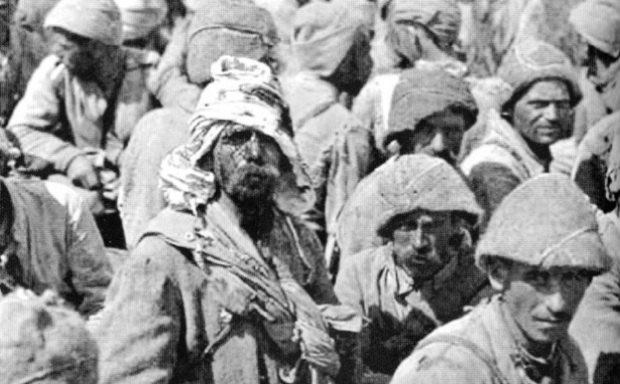
The First World War has been described as the most transformative event in the history of the modern Middle East. This lecture focuses on the Ottoman Empire which considered different options before siding with Germany – the losing side.
The British army’s occupation of Arab territories ended four centuries of Ottoman rule over them. An entirely new, arbitrary political map - indeed, the modern state system - emerged as six new successor states from the former Ottoman Empire were created: Turkey, Lebanon, Syria, Iraq, Palestine, and Transjordan.
The events of 9/11 and much of the crises in the modern Middle East stems from this decision. Indeed, it is possible to argue that had the Ottomans stayed neutral there would have been no Russian Revolution, no Cold War, and a totally different history of the 20th Century.
×Jan 7
January 30, 1933. Hitler’s appointment as German Chancellor
Dr. Tom Saunders
Jan 7
January 30, 1933. Hitler’s appointment as German Chancellor
Dr. Tom Saunders
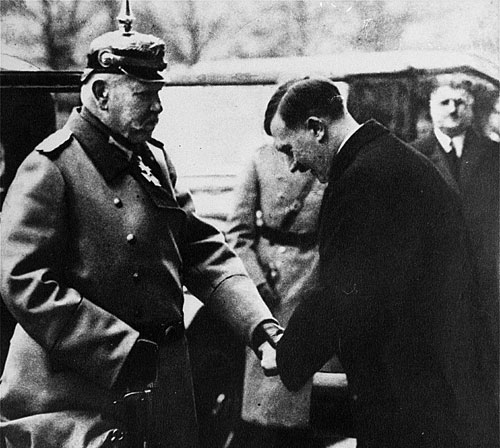
With his appointment as the leader of a coalition government of a country deeply mired in the depression, Adolf Hitler launched Germany on a road to expansion that was to change the face of Europe and profoundly alter the balance of power in the world. Until his suicide 12 years later, Hitler led a national revolution with far-reaching international consequences. The lecture will briefly examine Hitler’s personal background, discuss the circumstances and political tactics which explain his rise to power, and outline his aims and strategies as head of state and charismatic leader.
Suggested Readings:
J. P. Stern, Hitler: the Führer and the People (1975) Thomas Friedrich, Hitler’s Berlin:
Abused City (2012)
German
History in Documents – German Historical Institute, Washington
http://germanhistorydocs.ghi-dc.org/home.cfm
Feb 4
March 14th, 1981: The HIV/AIDS Pandemic
Dr. Elizabeth Vibert
Feb 4
March 14th, 1981: The HIV/AIDS Pandemic
Dr. Elizabeth Vibert

In March 1981 gay men in the United States began to die of rare forms of skin cancer and pneumonia. Soon the mysterious disease was given the name Acquired Immune Deficiency Syndrome (AIDS), and the causal virus was identified (HIV).
Researchers in the west at the time little realised that HIV was already wreaking its ravages in sub-Saharan Africa. HIV/AIDS has gone on to claim the lives of tens of millions of people around the world, hitting Southern Africa particularly hard.
This week we will consider the history of HIV/AIDS, tracing its emergence in colonial central Africa in the early twentieth century, its transmission to the Americas, and its most devastating demographic and cultural impacts in sub-Saharan Africa.
We will examine the contours of the HIV/AIDS pandemic in Africa as a demographic and social disaster; consider its ongoing significance in global politics and economy; and consider prospects for the UN Millennium Goal of cutting infections in half and eliminating new infections in children by 2015.
Suggested Readings:John Iliffe, The African AIDS
Epidemic: A History (2006) – by noted historian of Africa
Mar 4
November 9th, 1989: The day that brought down communism -- the collapse of the Berlin Wall
Dr. Oliver Schmidtke
Mar 4
November 9th, 1989: The day that brought down communism -- the collapse of the Berlin Wall
Dr. Oliver Schmidtke

Like no other date in history November 9, 1989 epitomizes one of the most dramatic and significant developments of contemporary history, namely the collapse of Communism in Europe and the end of the Cold War. When the Berlin Wall fell that day and thousands of East Germans crossed the formerly impenetrable dividing line between the two Germanys, the fate of Soviet-style Communism was sealed.
This lecture will highlight two aspects of this dramatic day: First, we tackle the question why Communism could be defeated so rapidly, unexpectedly and without any violence that is often associated with such fundamental changes in politics. What were the structural reasons that led to the demise of Communism and who were the actors involved in bringing it about? Second, we will address the effects of this momentous day more than twenty years ago. How has Europe changed with the collapse of Communism in Central Eastern Europe and what kind of long-term implications are there for contemporary politics?
×April 1
September 11, 2001 - 9/11
Dr. Jason Colby
April 1
September 11, 2001 - 9/11
Dr. Jason Colby

On September 11, 2001 - or 9/11 as it is popularly known - 19 men shook the world in two hours when they hijacked commercial airlines and crashed them into the Pentagon and the World Trade Centre. This lecture analyses the causes and consequences of the September 11 attacks, critically examining the idea that "Islam" and the "West" are in conflict.
×